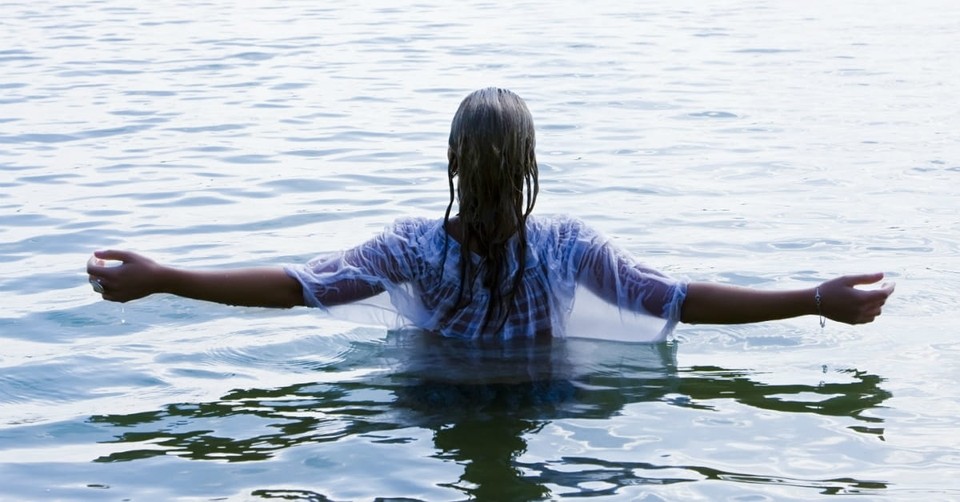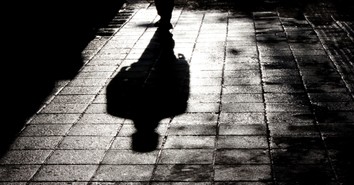Are We Baptizing Children Way Too Early?

Editor's Note: Pastor Roger Barrier's "Ask Roger" column regularly appears at Preach It, Teach It. Every week at Crosswalk, Dr. Barrier puts nearly 40 years of experience in the pastorate to work answering questions of doctrine or practice for laypeople, or giving advice on church leadership issues. Email him your questions at roger@preachitteachit.org.
Dear Roger,
I volunteer in Sunday school and recently overheard some of the kids say they wanted to be baptized. I was baptized as a Christian when I was still very much a child. Though I remember the event fondly, I now wish I had waited until I was older to take that step of commitment towards Christ. I didn't really understand what it meant to dedicate your life to Jesus, and I think I would have appreciated the action more if I'd waited a couple years. Do you think I should mention this to the children, or is it not my place? – Brian
Dear Brian,
"I'm a lost sheep, aren't I?" I said to mom and dad as their ears perked up. We had just returned from church on Sunday night. The pastor preached on the one lost sheep and the ninety-nine safe ones. The Shepherd searches until he finds the lost little lamb and brings him safely home.
I knew enough to know that I was a lost sheep. But, I had no idea what I was lost from. Mom and dad explained the gospel in simple terms. Three days and much discussion, prayer and tears I gave my life to Jesus.
I was seven years old. I was baptized by immersion on Mothers' Day, 1957.
Two weeks later I sensed that God was telling me that He wanted me to be a pastor. Six years later I preached my first sermon. My life's work was laid out before me. I never wavered.
My story is highly unusual. I made a deep commitment to Christ and stuck to it. Few determine the course of their lives at the age of seven--and stick to it. Of course, some do.
In an Evangelical Church culture where the age of children baptized reaches down to five or four, it is no wonder that so many of our church children are getting baptized too early and grow up with little whole-hearted dedication to Christ.
Maybe it is time to stop baptizing children and wait until they are twenty or so and in the process of putting in place their life-long values and commitments. It seems to me that we have an intriguing model of twenty-year-old conversions put in place by God when the spies returned and God punished Israel for their lack of faith. He declared that no one over the age of twenty could cross the Jordan River into the Promised Land.
You may have heard the term, the “age of accountability," which uses the same idea as the story above. The idea is a child has until twenty to make up their mind whether or not they want to follow Christ. The age of accountability varies from person to person--some older/younger than others. If they die before reaching the age of accountability they are not responsible for their sins and thus go to Heaven. However, after reaching the age of accountability they are responsible for their sins and need a personal savior--one who is both Lord and Savior.
Most children aren't able to declare, "Jesus is Lord," at the age of nine and have a significant understanding of what they have done. Let's give them some time to make their own decisions and not hurry them along too quickly to be baptized.
Jesus is searching for those who make life-long decisions of discipleship--not a stroll down the aisle with the words, "I believe in Jesus" followed by baptism that ten years later is proved meaningless.
Study the most demanding sermon that Jesus ever made as recorded in John 6. When He made the cost of discipleship quite clear, four-thousand, nine-hundred and eighty-eight turned on their heels and walked away. Only twelve were left.
"You're going to go away, too, aren't you?" said Jesus, expecting them to say, "Yes, we are leaving, too." Instead, Peter said, "Where shall we go? You have the words of life." We are in the process of coming to know Christ as our Lord and Savior when we know that there is no place else to go except to Jesus.
By the way, after Jesus preached this sermon everything changed. His ministry went downhill, straight to the cross.
What are some of the markers that help us know if it is time for a child to declare faith in Christ and be baptized? I will share several. However, this list is certainly not exhaustive.
1. A heart that is broken-hearted over personal sin. I remember the tears as I struggled with the fact that Jesus died for my sins and that I needed a savior (John 16:8-11). No one can come to Christ without dealing with their sin. It is important for anyone to realize if no one had ever sinned but me, Jesus would still die on the Christ for me to forgive my sins.
2. A human spirit that has matured enough to hear and answer a call from God. Our inner spiritual receptors do not come ready to work. They must be cultivated and matured. The timing of this maturing process varies from person to person. Even Jesus needed time for His human spirit to develop properly (Luke 2:52).
Here is where mom, dad, family and church leaders are needed--those who will take the time and effort to help children and teenagers develop their spiritual lives so that they can respond positively with enough understanding and experience when the Holy Spirit convicts them of their sin and need for Christ as Lord and Savior.
3. The ability to know, understand and enunciate the principles of the gospel. It is hard to commitment to something that we don't understand.
4. A conscious desire to receive Christ as a personal commitment for life.
5. Care is needed when considering whether or not it is time for a child or teenager to make a declaration of faith in Christ and be baptized. There is the danger of what I call spiritual abortion. The seed is planted early but the rocky soil dries out the gospel and/or the thorny soil crowds out the gospel As a result, he childhood proclamation fades into oblivion in later years.
6. BIG CAVEAT: No one has to have all of this straightened out in order to come to Christ. There is no set age when a person can become a Christian (John 1:12). For example, I had no idea of the implications of the Virgin Birth when I was seven. I didn't even know what a virgin was--but I came to Jesus.
7. Anyone can become a Christian at any time and any age (John 3:16).
May I close with an observation? There is much to be said for the saints of the last generations who didn't say, "I believe in Jesus" when they were children and then get baptized. They struggled with God until they could make certain that their sins were forgiven and they could make a life-long decision to follow. For example, Charles Spurgeon, John Wesley and John Bunyan were in their twenties when they made decisions to follow Christ--and they never wavered. If we were more like they, we would have more real, dedicated Christians and fewer misguided hypocrites.
Sincerely, Roger

Publication date:
Originally published February 02, 2016.







